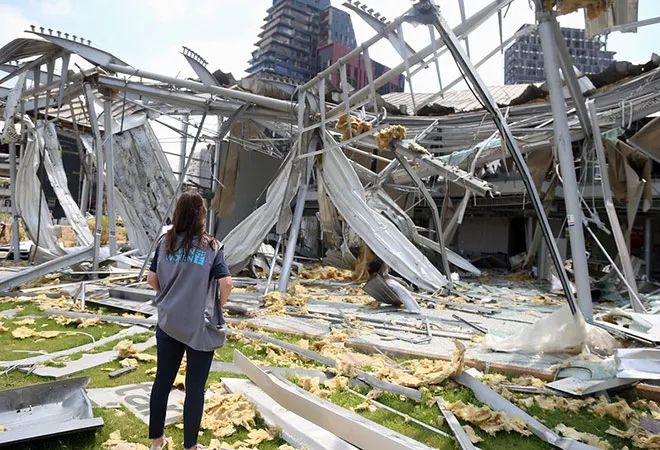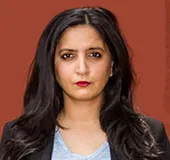-
CENTRES
Progammes & Centres
Location
There is hardly an assassination case or a bombing in Lebanon’s history that has been resolved with the guilty prosecuted.

Image Source: Ibrahim Dirani — UN Women via Flickr
2,750 tons of unsafely stored Ammonium Nitrate exploded at Beirut’s port on August 4 and devastated several historical neighborhoods in the city. At least 200 people were killed, thousands injured and hundreds of thousands turned homeless overnight.
Lebanon had been grappling with hyperinflation, joblessness worsened by the Coronavirus pandemic, and a political crisis. The devastation caused by the blast, estimated to be billions of dollars, broke the back of the country’s already fragile economy.
Lebanese media reported a trail of leaked documents that established that the highest offices in the country- the president, the PM, army officials, and judges- knew about the dangers the explosive presented. They had been made aware that it was unsafe to store it near residential areas and yet they did nothing to dispose of it.
Days after the blast, the Lebanese gathered on the streets and demanded that the ruling elite, including high-ranking officials, who were in the know be held accountable. There is hardly an assassination case or a bombing in Lebanon’s history that has been resolved with the guilty prosecuted. Sect-based political parties control the judiciary here and that has led to a deep mistrust among the people towards the country’s judicial processes. Hence, they called for an investigation by an international panel.
Lebanon’s government, however, set up an internal inquiry. Just as the people feared it has made little headway.
Fadi Sawan, a former military prosecutor, was selected as the investigating judge in the trial above two other judges who were seen to be more independent of the political class.
Mr Sawan, nonetheless, charged more than 30 people including Prime Minister at the time of the blast, Hassan Diab, as well as three other ministers. But all four have refused to appear for questioning as suspects, and instead, two of them approached the country’s highest court- Lebanon’s Court of Cassation - and sought Judge Sawan's replacement.
They said that ministers enjoyed immunity and can only be called for questioning by a special tribunal once 2/3rd of parliament voted in favour of it. But independent legal experts in the country have challenged that interpretation and said that ministers cannot avail of the aforementioned immunity if the crime in question is as serious as the blast that ended up killing innocent people.
Legal Agenda, the most prominent and well-respected legal aid organization in Lebanon, released a long explanation on why ministers come under the ambit of the regular judiciary in such cases.
Nizar Saghieh, the founder of legal Agenda, wrote in an open letter that Sawan resorted to Article 70 in the constitution, “which pertains to prosecuting ministers,” in a manner that allows him to initiate the prosecution without obtaining an indictment from Parliament.
“The first of these interpretations is that the judiciary still has the jurisdiction to prosecute ministers for criminal acts they commit in the course of performing their ministerial function as long as Parliament has not done so. To this end, the Court of Cassation relied, in particular, on the phrasing of the French version of Article 70 (i.e. the Constitution’s original text that was translated into Arabic and later amended in 1990), which states that Parliament “has the right” to indict ministers for high treason or breach of official duties,” Saghieh wrote.
On February 18 the court ordered in favour of the ministers and removed Sawan as the investigating judge citing "legitimate suspicion" over his neutrality since his house too was damaged in the blast.
Investigating the crime has become even more complicated as a Lebanese journalist exposed that the UK-based company that purchased the explosive was intact a shelf company and shared its addresses with two Syrian businessmen.
This has raised questions over Syrian involvement in the blast and many are asking if the explosive was meant for the benefit of Bashar al-Assad’s government at war against rebels. Legally, however, it isn’t clear if the investigating judge would also investigate allegations against Syrian businessmen.
The Lebanese who lost their homes and businesses in the blast are not waiting for any compensation from the government and say that they don't expect a penny. Those who can have started to rebuild while others are looking to somehow escape the country.
The views expressed above belong to the author(s). ORF research and analyses now available on Telegram! Click here to access our curated content — blogs, longforms and interviews.

Anchal Vohra was a Fellow at ORF. She writes on contemporary developments in West Asia and on foreign policy.
Read More +